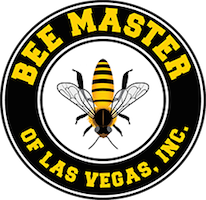Are you thinking about starting a buzzing venture in beekeeping? Beekeeping can be very rewarding but also quite challenging, so we put together a list of advantages and disadvantages of beekeeping to help you along your decision-making process.
Benefits of Beekeeping
Pollination
Bees are vital pollinators and play a crucial role in the reproduction of many plants. By keeping bees, you pollinate nearby gardens, orchards, crops, and wildflowers, increasing crop yields and biodiversity.
Honey Production
One of the most apparent benefits of beekeeping is the opportunity to harvest your honey. Fresh, raw honey is delicious and has numerous health benefits. Honey can be used as a natural sweetener and for medicinal purposes. As people become more health-conscious, high-quality local honey will continue to be in high demand.
Beeswax and Other Products
In addition to honey, bees produce other valuable products such as beeswax, propolis, and royal jelly. Beeswax can be used for candle making, cosmetics, and even as a natural wood polish. Propolis has antimicrobial properties and can be used in natural remedies. Royal jelly is highly nutritious and is often used in health supplements.
Potential Income Source
When beekeepers have a high-quality, high-yield season, they can sell honey, beeswax, propolis, and other products to grow a source of income potentially. Beekeepers can also offer their hives for pollination services to farmers to improve crop pollination.
Environmental Impact
By keeping bees, you contribute to the conservation of honeybee populations, which currently face numerous challenges, such as habitat loss and pesticide exposure. Beekeeping helps to support the overall health and well-being of bees, ensuring their survival for future generations.
Downsides of Beekeeping
Time and Commitment
Beekeeping requires a lot of time and commitment. Bees need regular care and attention, especially during the warmer months when they’re most active. You must dedicate time to inspecting the hive, monitoring for disease, ensuring safety, and managing the colony.
Setup Costs
Compared to traditional farming practices, beekeeping is relatively cheap, but some cost is still associated with managing your bees. You’ll need to purchase equipment such as hives, frames, protective clothing, and tools. Ongoing expenses include feeding bees during nectar scarcity, treating diseases and pests, and licenses and permits.
Risks of Stings
While bee stings often occur to professional beekeepers, they are an inevitable part of beekeeping. Many beekeepers develop a tolerance over time! However, if you have severe allergies or a fear of stings, beekeeping may not be the right hobby for you.
Regulations and Neighbors
Depending on your location, there may be regulations and restrictions regarding beekeeping, such as permits and regular inspections. It’s essential to familiarize yourself with local laws and regulations before starting. Additionally, consider the proximity of your neighbors and their potential concerns about bees.
Disease and Pests
Bees are vulnerable to diseases such as foulbrood, chalkbrood, and nosema, requiring careful monitoring and treatment. Additionally, parasites such as Varroa mites are common in bee colonies and can devastate a hive if left untreated. Predators such as bears and skunks can damage hives and kill bees in certain regions.
Bee Removal Services in Las Vegas
We’re not called the Bee Master of Las Vegas for nothing! While we take pride in being a top-quality bee removal company, we also serve as a resource for all things bee-related, helping you appreciate and care for bees just like we do. If you need safe and effective bee removal services, call us for a free estimate today!
